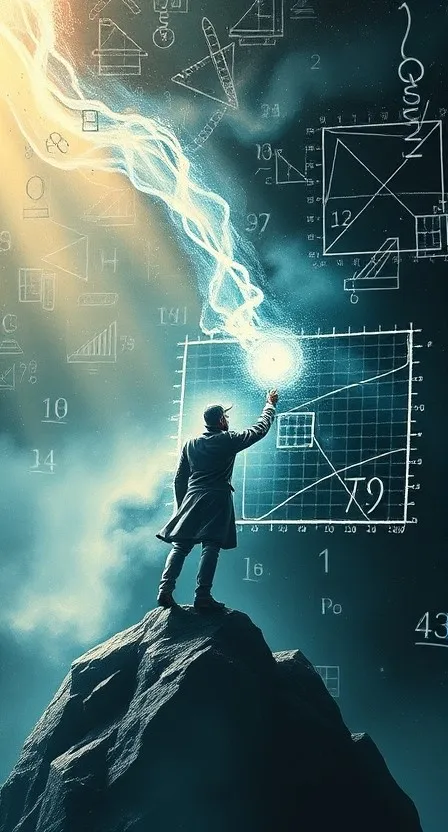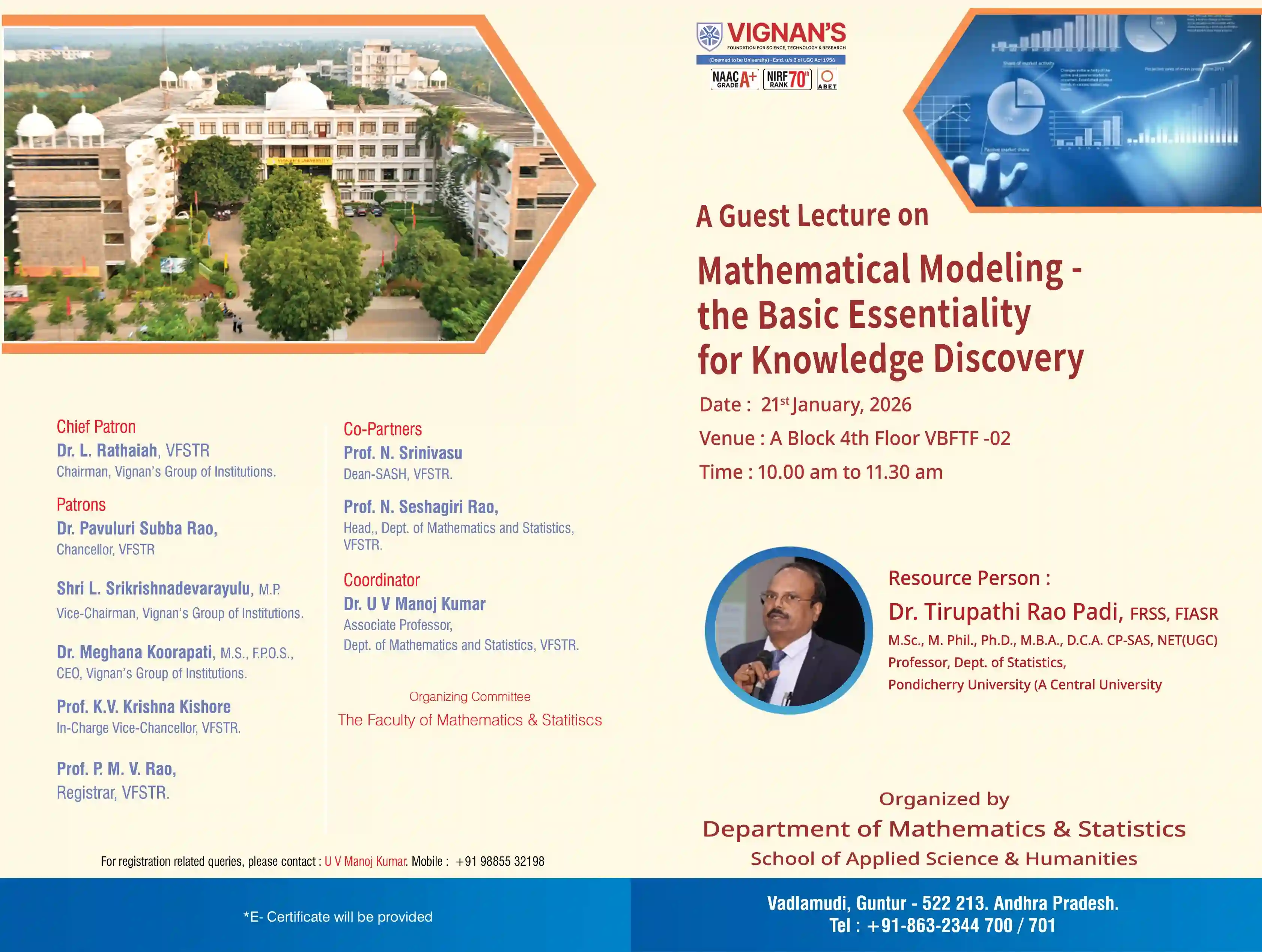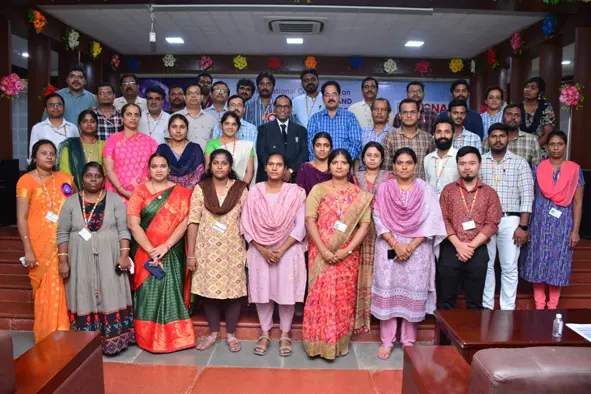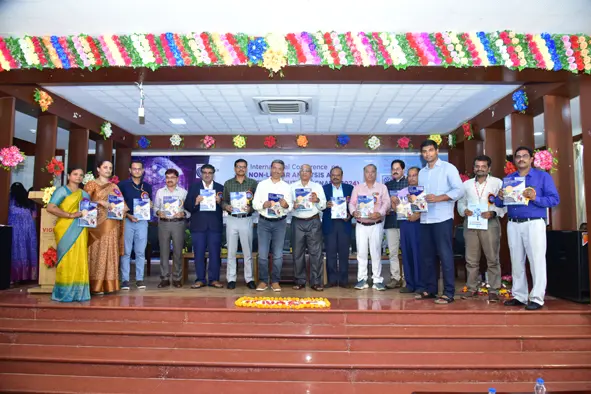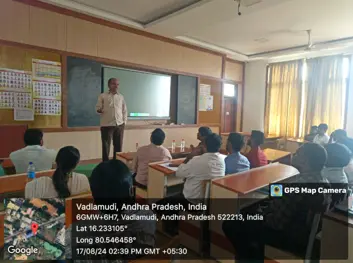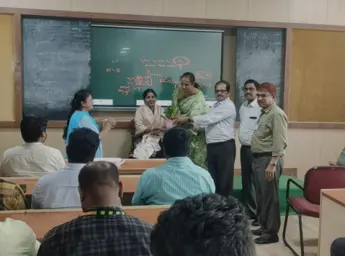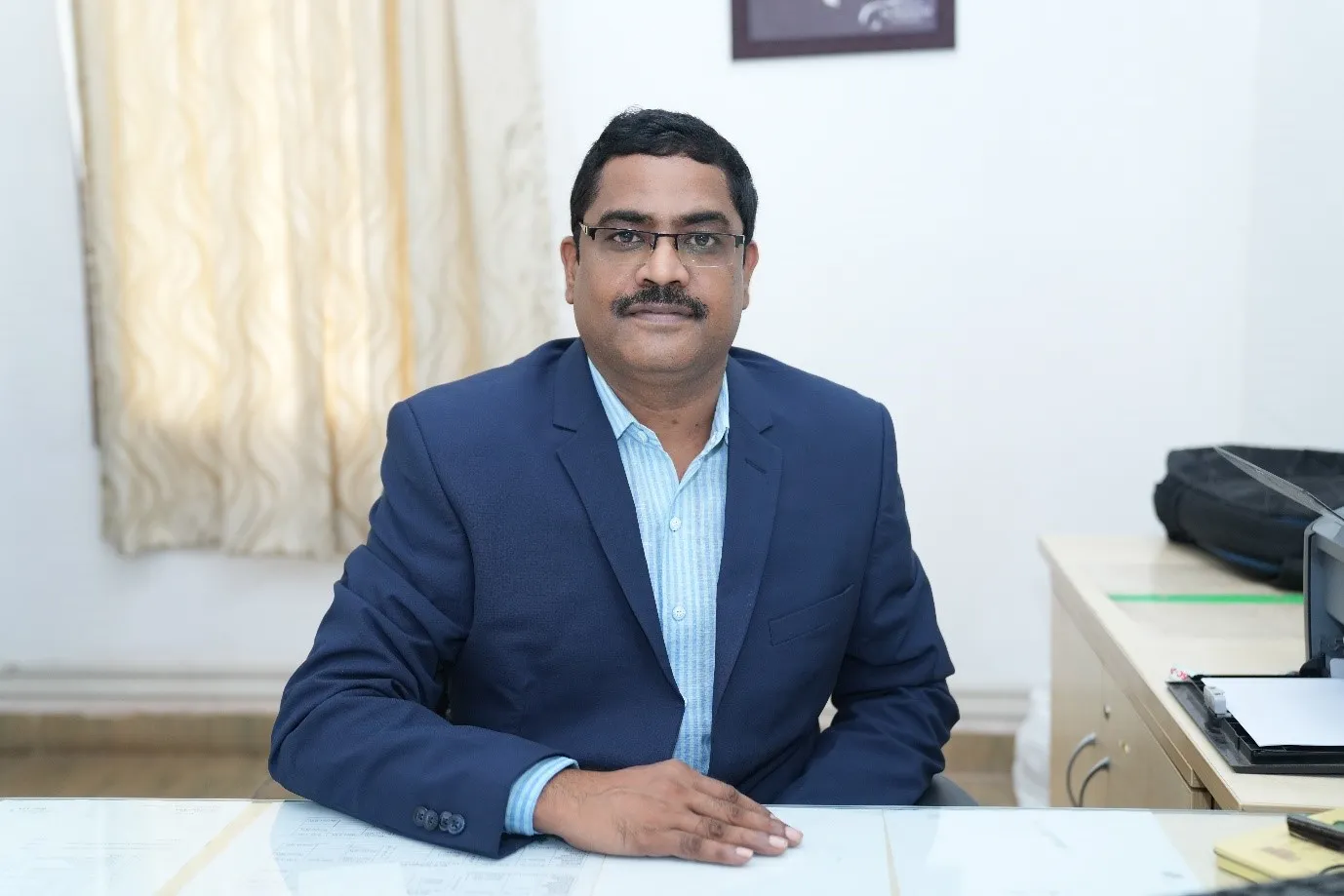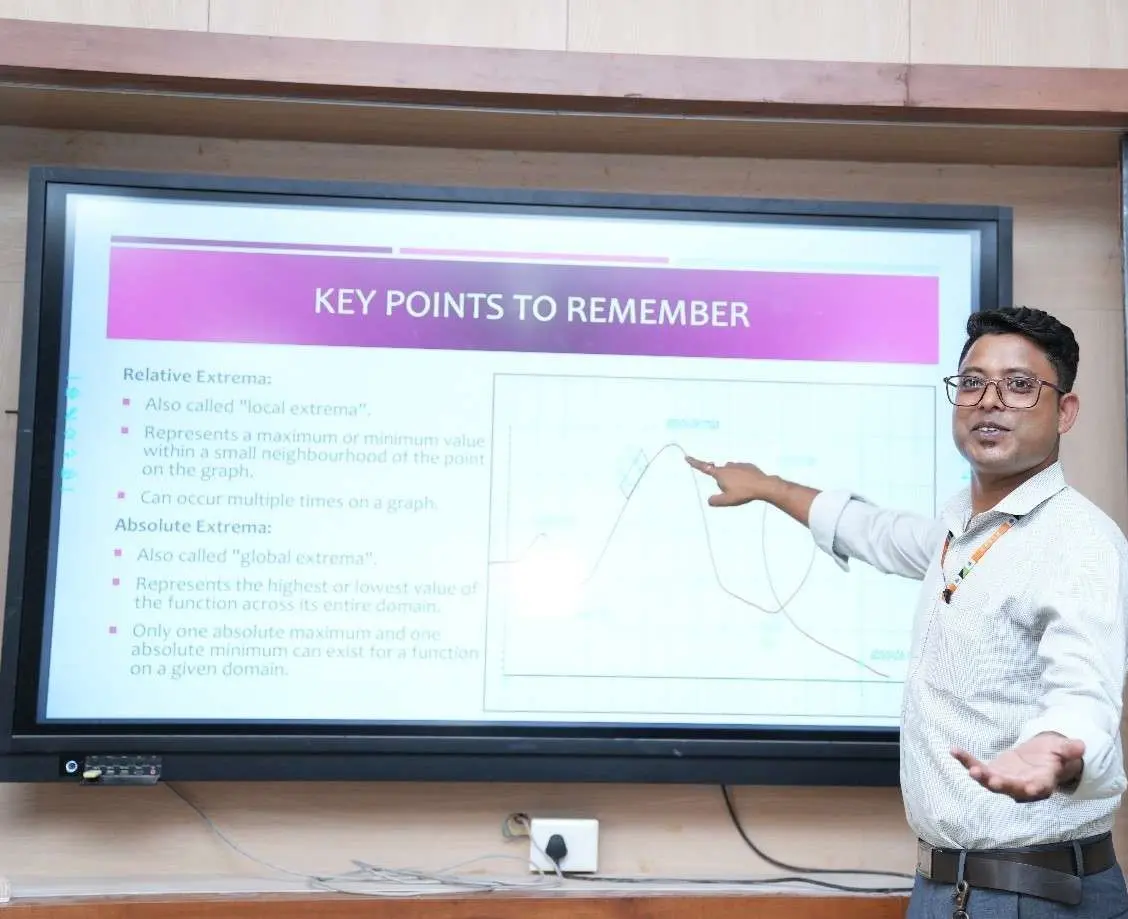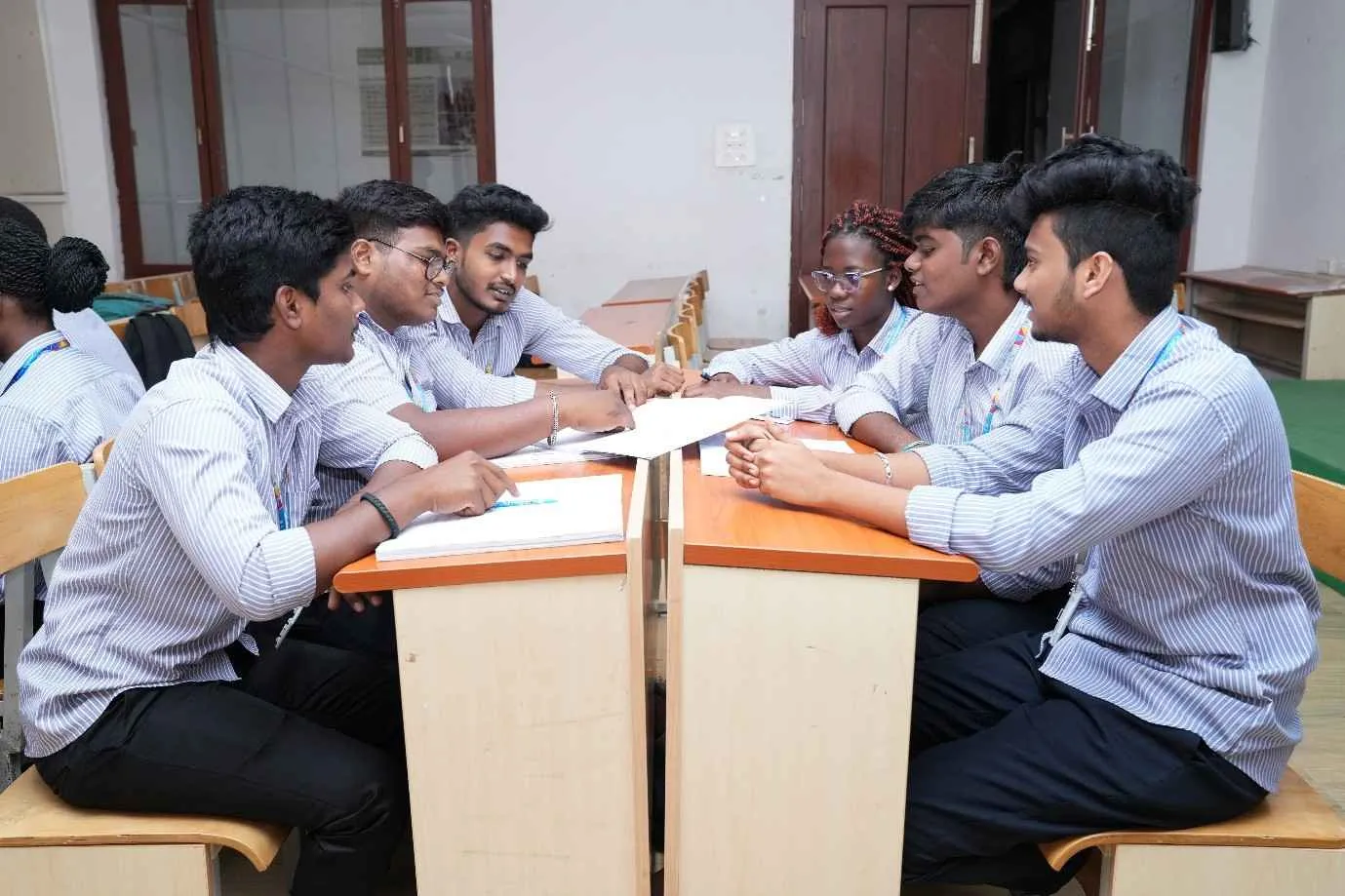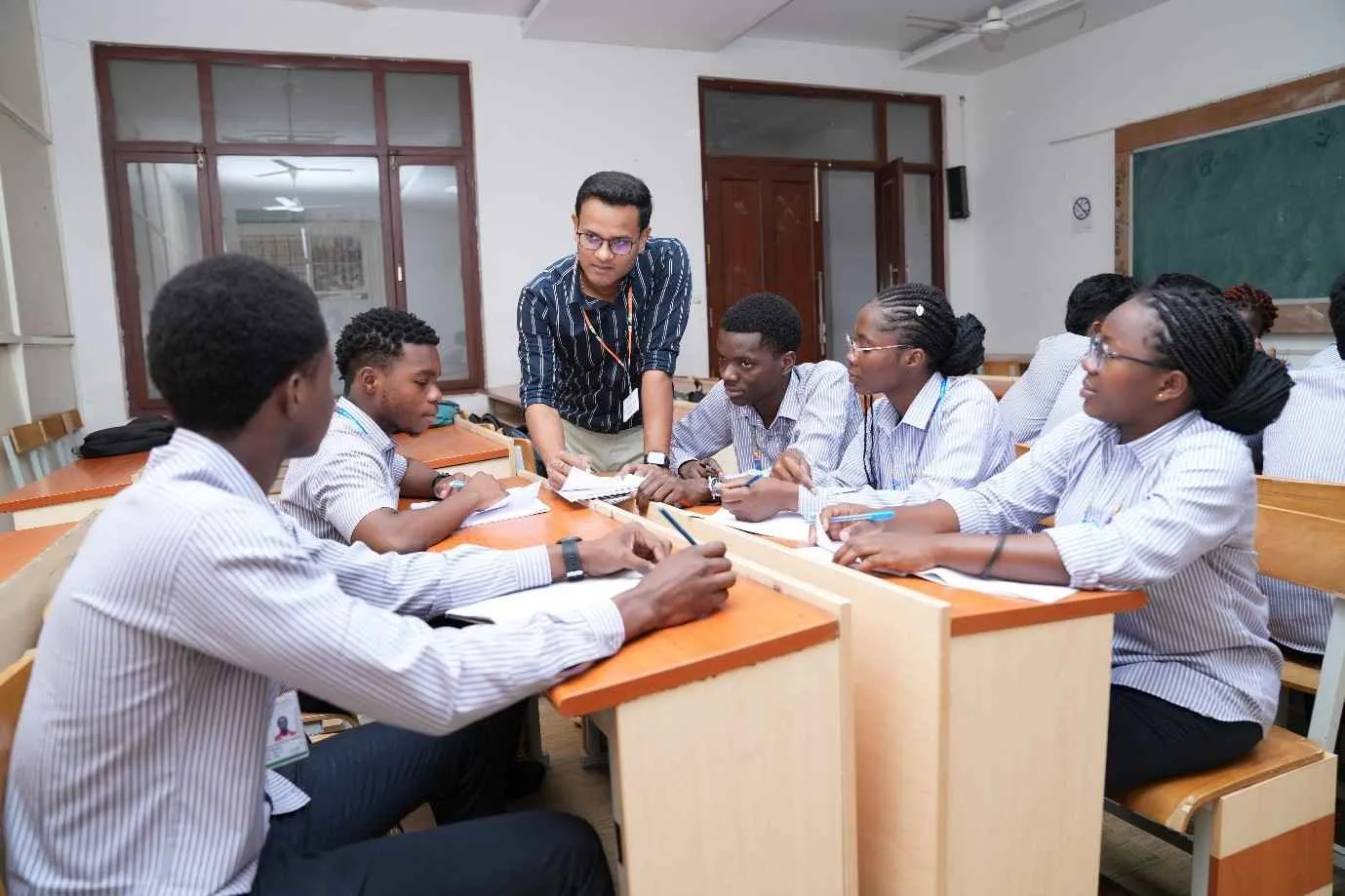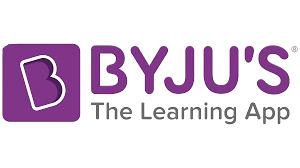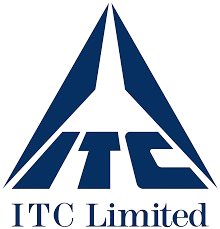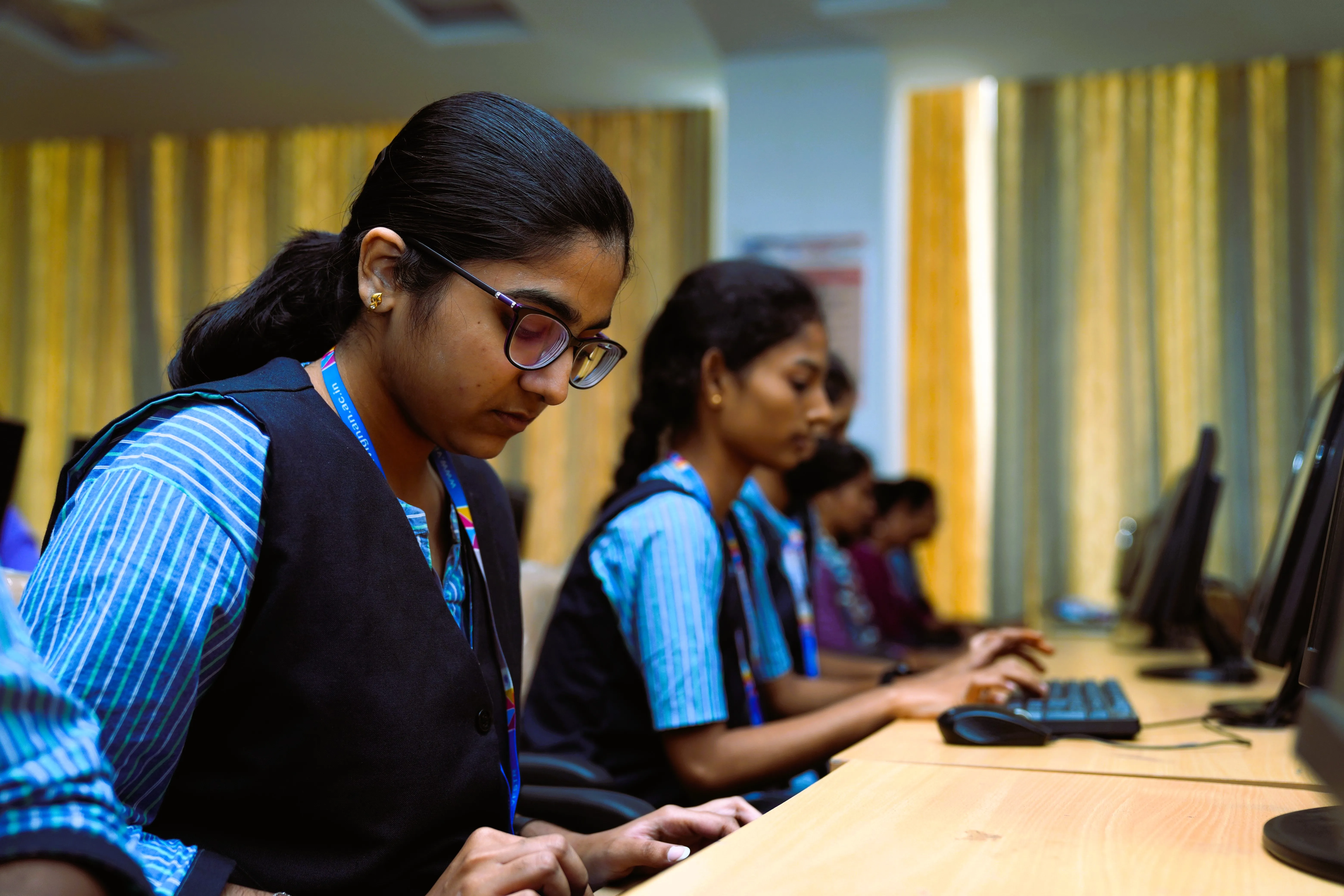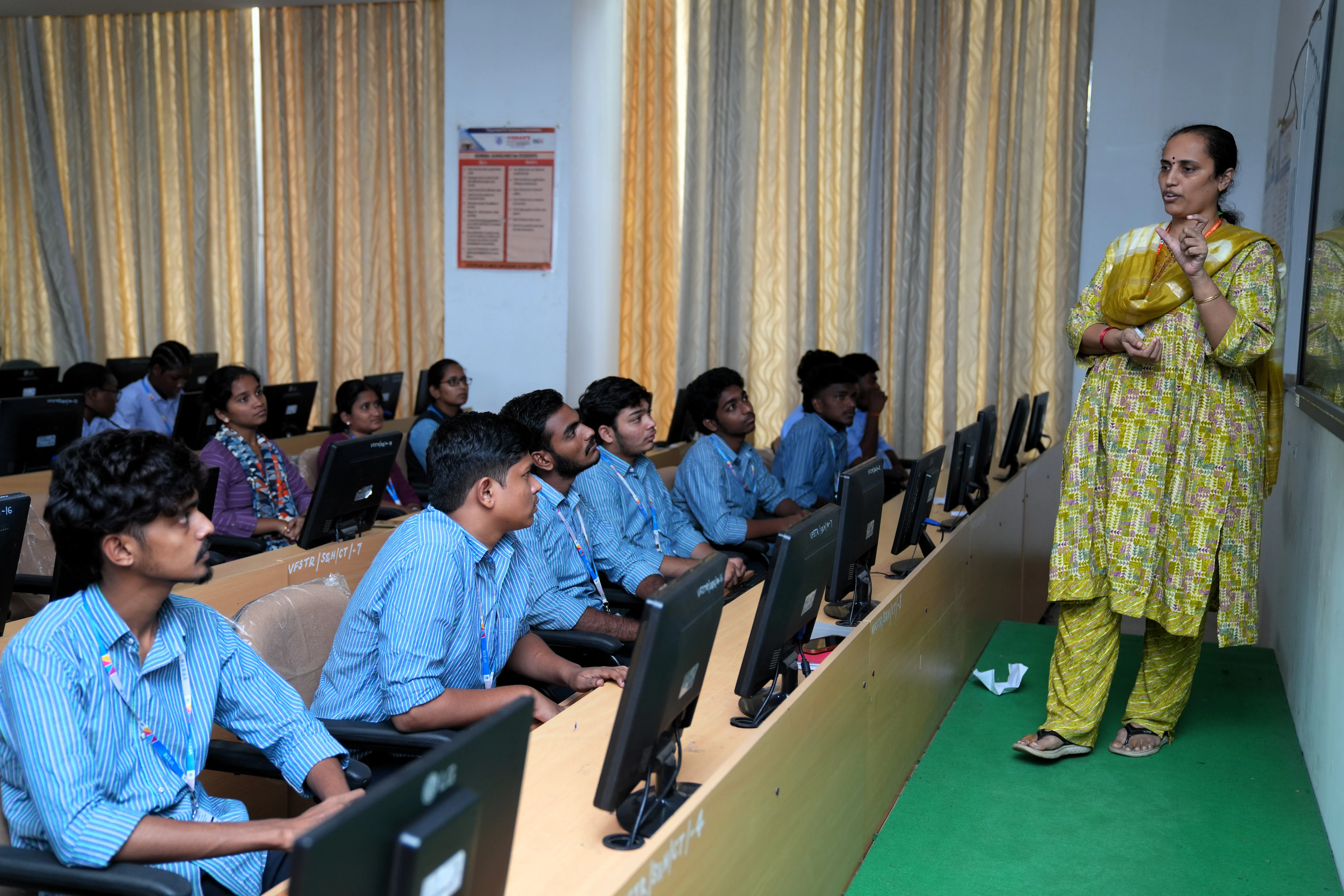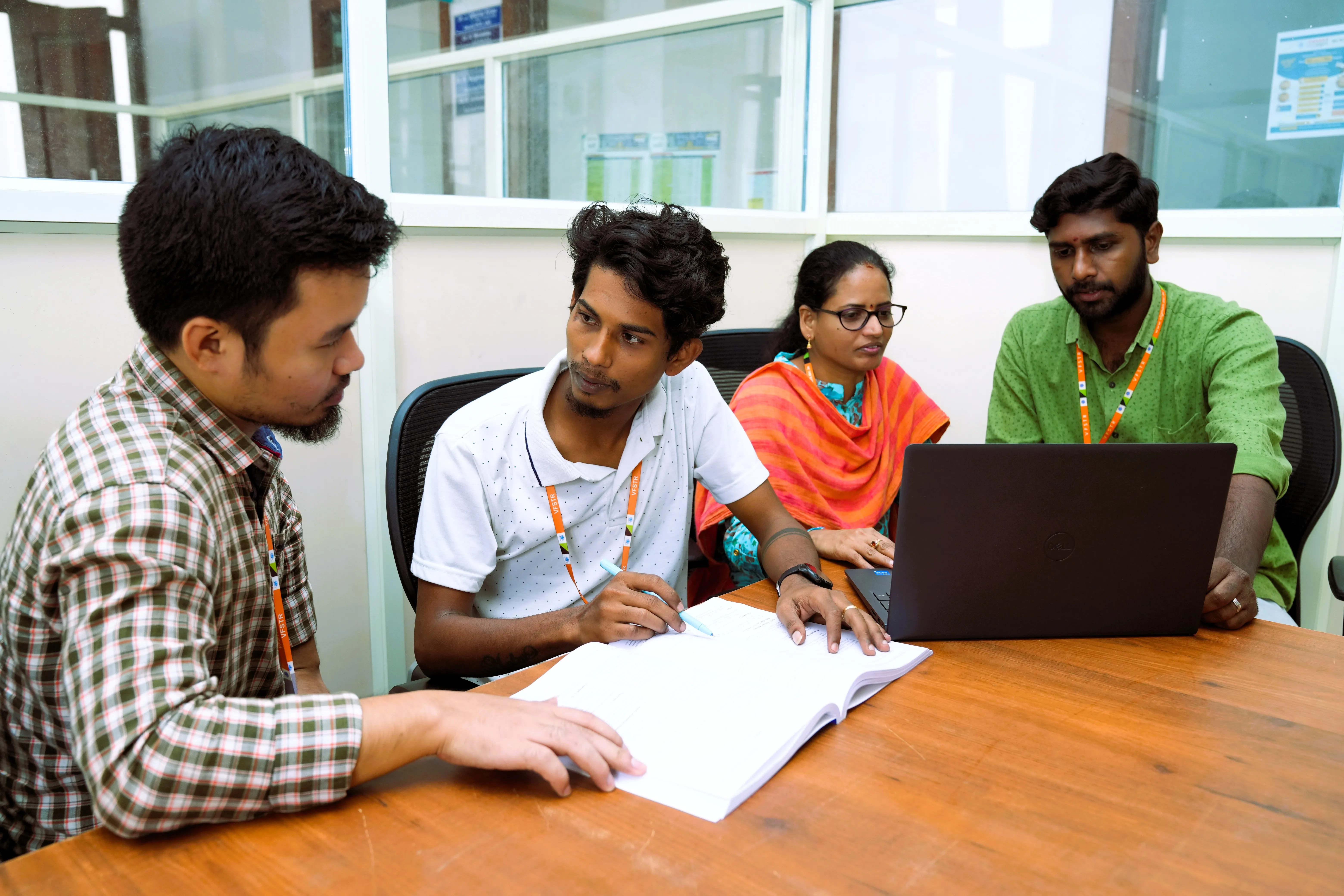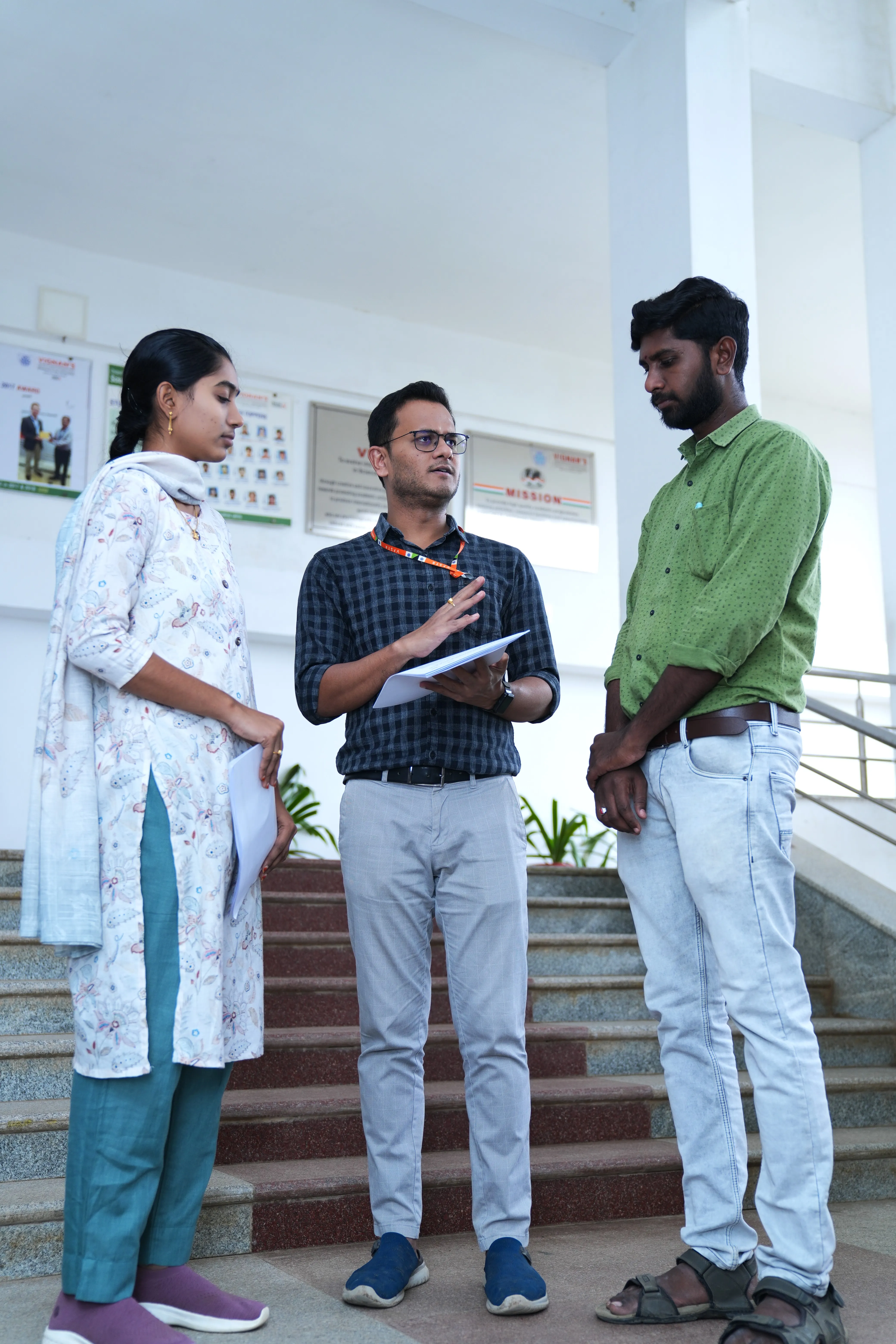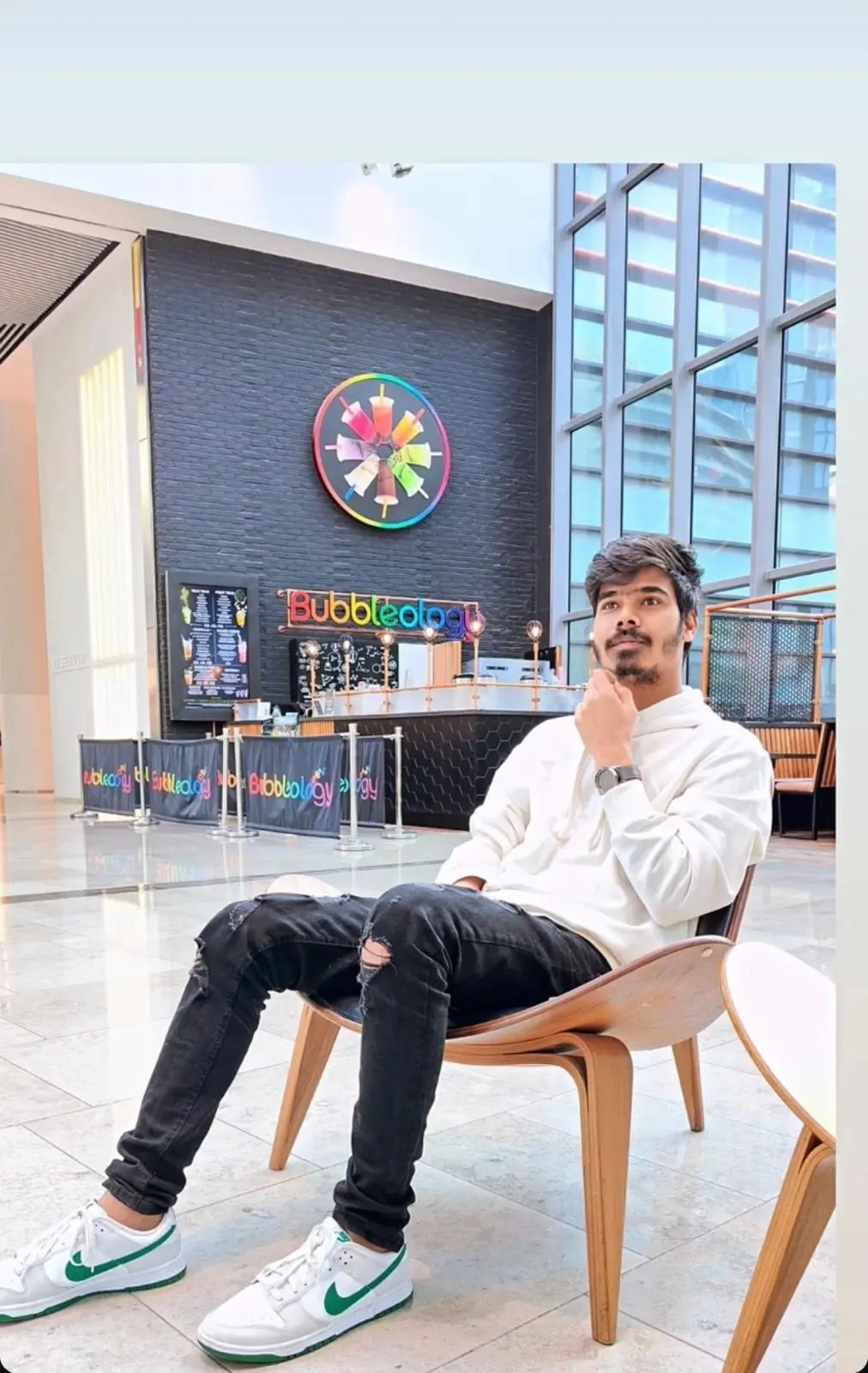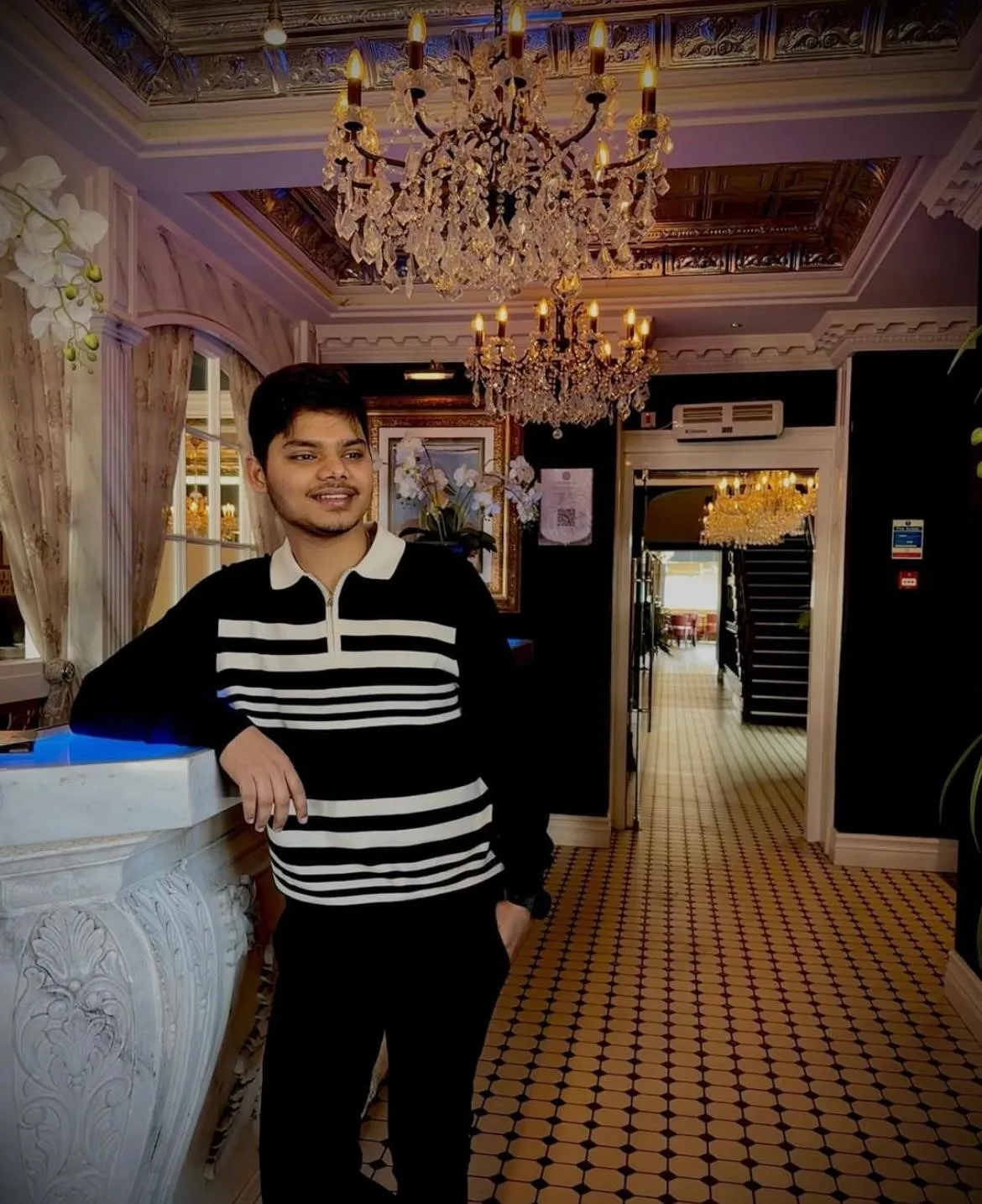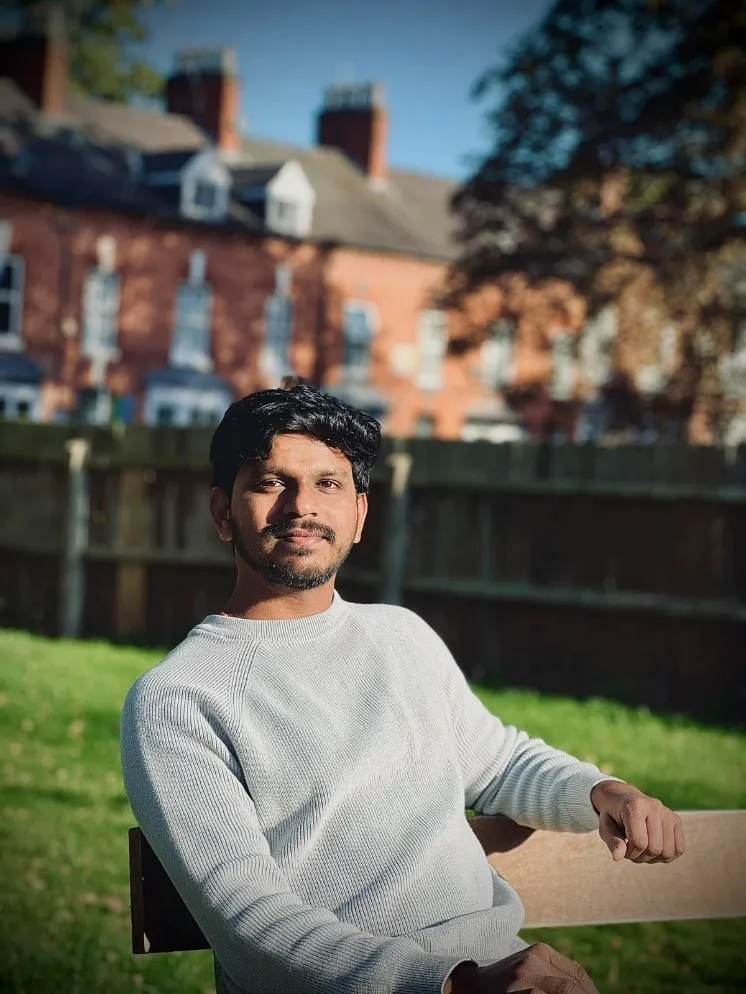21-Jan-2026
Mathematical Modeling - the Basic Essentiality for Knowledge Discovery
Mathematical modeling is the process of representing real-world situations using mathematical concepts such as equations, graphs, tables, and simulations. It helps in understanding, analyzing, and predicting the behavior of complex systems by simplifying reality into a mathematical form. In mathematical modeling, assumptions are made to focus on the most important factors of a problem. Variables and parameters are defined, and relationships between them are expressed mathematically. The model is then analyzed to draw conclusions, make predictions, or support decision-making. If needed, the model is refined to better match real-world observations. Mathematical modeling is widely used in science, engineering, economics, medicine, social sciences, and environmental studies to solve problems, test ideas, and optimize outcomes.
28-Sep-2024
ICNASC-24 International Conference concludes at Vignan’s
Mehran Mazandarani, a professor at Shenzhen University in China, said it would be better if engineering students were not only aware of the subjects related to their branches but also basic science and mathematics. The Department of Mathematics and Statistics, Department of Applied Science and Humanities, Department of Applied Science and Humanities, Vadlamudi Vignan’s University, Chebrolu mandal, jointly organized a three-day international conference on "International Conference on Non-Linear Analysis and Scientific Computing (ICNASC-2024)" under the joint auspices of the Department of Mathematics and Statistics, Serbs, concluded a three-day international conference on "International Conference on Non-Linear Analysis and Scientific Computing (ICNASC-2024)". Mehran Majandarani, professor at Shenzhen University in China, who was the chief guest at the closing ceremony, said that the differential equations in mathematics should be used to understand the economic conditions in markets and to study integrated economic changes.
These equations will also be used to estimate population growth, spread of diseases, etc. University of Delhi professor Poonam Singh, who was also the chief guest, said, "Improving the quality of a product with the help of orthogonal arrays, how to meet the appropriate standards? They are used to assess the extent to which different standards should be followed. "Good results can be obtained with a fewer numbers of tests with orthogonal arrays to perform repeated tests on technical devices such as planes and rockets. Using orthogonal coding techniques in data transmission can help prevent errors. Madhumangal Pal, a professor at Vidyasagar University, said fuzzy graphs can be used in telecommunication networks. These will be useful in keeping the services from being affected even in case of momentary changes or mistakes. Using fuzzy graphs and topological indices in the areas of computer vision and image processing can easily identify the edges, shapes, and colors in images.
Dr Manaskar, IISER, Bhopal, said inverse problems are used to do the reading of internal organs based on data obtained through scanning methods. These methods are widely used in scanning technologies such as CT scan and MRI. In communication and computer science, inverse problems are used to correct errors in relation to actual data and actual information. Later, certificates were handed over to the students who excelled in various competitions conducted by the students. University Vice-Chancellor Prof. P. Nagabhushan, Registrar Dr. M.S. Raghunathan, Deans, Heads, Faculty and Students of the respective departments were present on the occasion.
26-Sep-2024
International Conference inaugurated at Vignan
Dr Santo Banerji of Politecnico di Torino in Italy said that nonlinear analysis will accelerate innovations and research, as well as create accuracy and pave the way for new discoveries. The Department of Mathematics and Statistics, Department of Applied Science and Humanities, Department of Applied Science and Humanities, Vadlamudi Vignan’s University, Chebrolu mandal, jointly organized a three-day international conference on "International Conference on Non-Linear Analysis and Scientific Computing (ICNASC-2024)" under the joint auspices of the Department of Mathematics and Statistics, Serb, inaugurated the three-day international conference on "International Conference on Non-Linear Analysis and Scientific Computing (ICNASC-2024)" in a hybrid mode on Thursday. Later, a special issue of "ICNASC-2024" was released. Dr Santo Banerji of Politecnico di Torino, Italy, who was the chief guest at the event, said that non-linear analysis can be used for solving technology and engineering problems. It understands the problems that are not possible with linear methods and helps in solving them.
For example, nonlinear analysis plays a key role in predicting climate change or earthquakes. Non-linear systems are close to real-world problems. Our environment, biological systems, economies, etc., are all working in non-linear ways to make it easier to solve problems. Apart from this, students should also develop an understanding of subjects like Artificial Intelligence, Cryptography, IoT and Data Science. Nit Durgapur Professor Samarjit Kar, who was also the chief guest at the event, said the use of scientific computing can speed up rigorous engineering and scientific research with large calculations as well as complex simulations. It is widely used from astrophysics to material science. IIT Dhanbad professor Srinivasarao Pentyala said that using scientific computing software, a lot of calculations and data analysis can be done in a short span of time. This will reduce costs for research and industries and increase the pace of research. Tirupati Rao Padi, a professor at Pondicherry University, said all students should understand the concept of STEM (Science, Technology, Engineering and Mathematics). Right now, the whole world is focused on mathematics. Modern technologies like data science, artificial intelligence and machine learning are also based on scientific computing. These will contribute to modern problems and large data analytics.
Dr G Srinivasa Rao, faculty at the University of Dodoma in Tanzania, said nonlinear analysis and scientific computing could lead to new innovations. This will not only make research more sophisticated but will also show new ways to solve future problems. Shiv Dutt Kumar, a professor at MNNIT in Allahabad, said there are many problems in mathematics that are still unresolved. If students are able to solve any one of the problems in them, their life will settle down. Isi Kolkata professor Arup Kumar Das said that a wide range of applications should be made in physics, biology and chemistry. Nonlinear analysis and scientific computing can be used in many fields such as fluid dynamics, quantum physics, biological systems, etc. Dr Asit Saha, faculty member of Sikkim Manipal University, said that students who have mastered mathematics and statistics should opt for data science as a subject of research in the future. At present, all multinational companies are using data science extensively. So there will be a good demand for students who have mastered it. More than 500 faculty and research scholars from various countries and states participated in this international conference and published their research papers. .
Vice-Chairman of Vignan’s Educational Institutions Lavu Srikrishna Devarayalu, University Vice-Chancellor Prof. P. Nagabhushan, Registrar Dr. M.S. Raghunathan, Deans, Heads, Faculty and students of the respective departments were present on the occasion.
17-Aug-2024
Nonlinear Stability of Flows through Porous Media
Vignan's Foundation for Science, Technology & Research (VFSTR) organized a guest lecture on "Nonlinear Stability of Flows through Porous Media" on 17th August 2024. The lecture, hosted by the Department of Mathematics and Statistics, School of Applied Sciences and Humanities, featured Dr. Anantha Lakshmi Narayana P., a distinguished professor from IIT Hyderabad.
Dr. Narayana's insightful talk delved into the complex mathematical principles underlying the stability of fluid flows through porous media, with a focus on nonlinear analysis. His presentation highlighted cutting-edge research applications in fields such as geophysics, petroleum engineering, and environmental science. The event was convened by M. V. Subba Rao, Associate Professor, VFSTR and attended by faculty, students and researchers. The lecture provided an enriching experience, fostering academic discourse and sparking interest in advanced mathematical modelling. The session concluded with an engaging Q&A, offering deeper insights into the subject.
06-Aug-2024
Algebraic Coding Theory
On August 6, 2024, the Department of Mathematics and Statistics, School of Applied Sciences and Humanities at Vignan's Foundation for Science, Technology & Research hosted an enlightening guest lecture on "Algebraic Coding Theory" delivered by Prof. G. Shobhalatha from S. K. University, Anantapur. The event saw enthusiastic participation from the entire academic community, including faculty members, Ph.D. scholars, and several students from various departments. The event began with a welcome address by Dr. N. Seshagiri Rao, Head of the Department.
Dr. G. Shobhalatha, Professor from S.K. University, Anantapur, was the guest speaker. She provided an in-depth exploration of algebraic coding techniques, discussing their theoretical underpinnings and practical applications in modern communication systems. The session was highly interactive, with Prof. Shobhalatha engaging with attendees through thought-provoking discussions and Q&A sessions, fostering a deeper understanding of the subject matter. The event concluded with a vote of thanks from Dr. G. Srinivasa Rao, Associate Professor of Mathematics.
15-Jun-2024
Maths International conference on Valedictory
Professor C. Shastri of IIT Hyderabad said that students who have done research in the field of mathematics will have a bright future. The three-day hybrid mode international conference on "Emerging Trends in Mathematics and Scientific Computing" under the auspices of the Department of Mathematics and Statistics, School of Applied Science and Humanities, Vadlamudi Science University, Chebrolu Mandal, concluded on Saturday. IIT Hyderabad Professor C. Shastri, who was the chief guest of the program, said that the students will have a bright future only if they gather information to identify different categories of consumers, their interests and their needs and collate and categorize them. He explained that if research in the fields of mathematics and statistics increases, many benefits will come to mankind. The youth should focus on this.
Dr. M. Venugopala Rao, Data Analyst, Novartis Company, Hyderabad, who attended the program online as the chief guest, said that it would be good if the engineering students were not only aware of the subjects related to their branches but also of basic science and mathematics. It is suggested that this knowledge will be very useful in the future. He said that by studying specializations like mathematics, statistics, probability and getting trained in statistical analysis system, Hadoop and other software programs, the skills of a data scientist can be acquired. Certificates were given to the students who excelled in various competitions organized for the students. Later, the chief guests who attended the program were felicitated. Deans, heads, staff and students of the respective departments participated in the program.
13-Jun-2024
ICETMSC'24 International Conference
IIT Kharagpur professor GP Rajasekhar said that all students should do extensive research on Data Science. Under the auspices of the Department of Mathematics and Statistics, School of Applied Science and Humanities, Chebrolu Mandal, an international conference on "Emerging Trends in Mathematics and Scientific Computing" will be organized for three days in hybrid mode (online and Offline) was grandly launched on Thursday. Professor G. P. Rajasekhar of IIT Kharagpur, who attended the program as the chief guest, said that students who have mastered mathematics and statistics should choose data science as their research field in future. Presently all multinational companies are using data science extensively. So there will be a good demand for students who have mastered it.
Professor P. Nagabhushan, Vice-Chancellor of Vignan’s University, who attended the program as the chief guest, said that information is always changing. They want to make learning a continuous process so that students can survive in the competitive world only if they are updated. They want to know as many new things as possible and not just limited to academic knowledge. Professor Nabil Malaiki of Prince Sultan University, Saudi Arabia, who attended the program online as the chief guest, informed the students how to use the latest developments in algebra in daily life. Also, Professor Zulkermain Sabir of the Lebanese American University in Lebanon, who was present as another chief guest online, explained the techniques of Numerical Network System to the students. Varsity Vice Chancellor Professor P. Nagabhushan, Deans, Heads, teaching staff and students of the respective departments participated in the programme.



